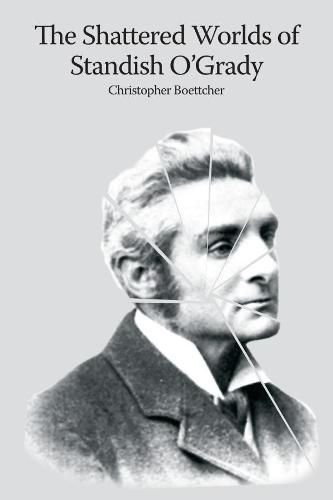Readings Newsletter
Become a Readings Member to make your shopping experience even easier.
Sign in or sign up for free!
You’re not far away from qualifying for FREE standard shipping within Australia
You’ve qualified for FREE standard shipping within Australia
The cart is loading…






Standish O'Grady (1846-1928) is best remembered as the Father of the Irish Literary Revival. Critics of have long puzzled, however, about the turns and contradictions of the Fenian-unionist’s thinking. This book offers an intellectual biography of O'Grady, tracing the tortuous development and influence of his ideas. It presents a new study of O'Grady’s early historical and political works and, for the first time, a comprehensive overview of O'Grady’s writing for the All Ireland Review. He edited the review 1900-7, the most prolific period of his writing life. This writing led O'Grady into many curious schemes, culminating in his turn to anarchism and promotion of Estates of the New Order, a plan to build communes in the Irish countryside. The portrait of the enigmatic writer contextualizes his role in the rise of Irish nationalism and explores the complexities of political and social affiliations during the first, formative decade of the twentieth century.
$9.00 standard shipping within Australia
FREE standard shipping within Australia for orders over $100.00
Express & International shipping calculated at checkout
Standish O'Grady (1846-1928) is best remembered as the Father of the Irish Literary Revival. Critics of have long puzzled, however, about the turns and contradictions of the Fenian-unionist’s thinking. This book offers an intellectual biography of O'Grady, tracing the tortuous development and influence of his ideas. It presents a new study of O'Grady’s early historical and political works and, for the first time, a comprehensive overview of O'Grady’s writing for the All Ireland Review. He edited the review 1900-7, the most prolific period of his writing life. This writing led O'Grady into many curious schemes, culminating in his turn to anarchism and promotion of Estates of the New Order, a plan to build communes in the Irish countryside. The portrait of the enigmatic writer contextualizes his role in the rise of Irish nationalism and explores the complexities of political and social affiliations during the first, formative decade of the twentieth century.